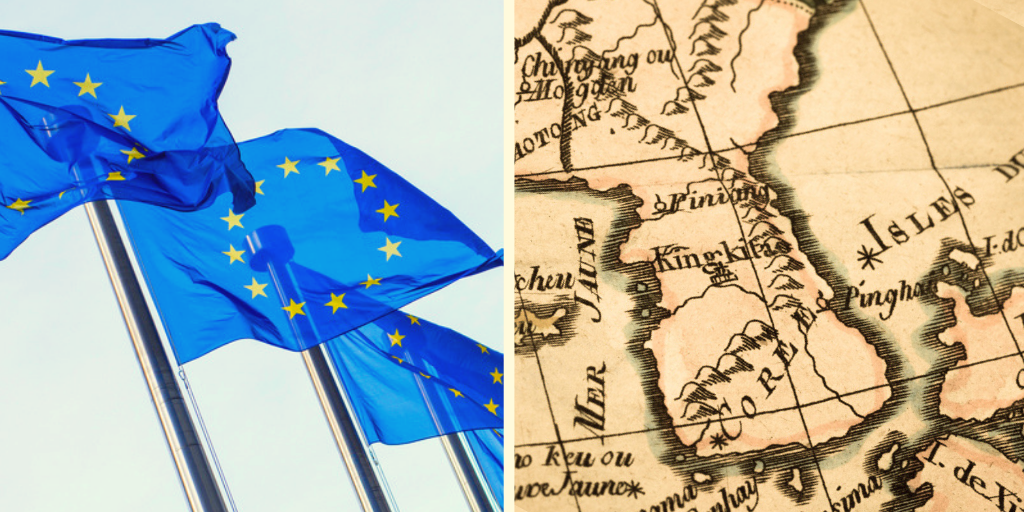The European Union in Crisis: What Challenges Lie ahead and Why It Matters for Korea

The EU is currently undergoing serious challenges from inside such as Brexit and strengthening Euroscepticism, rising populism and changing political geography, anti-immigration moods as well as retarded economic recovery.

These difficulties are further compounded by global uncertainties, strengthening protectionism and rising tensions between the United States and China. Korea has been severely affected by uncertainties and risks from Europe and the EU as well as those from the global economy. This volume of research is designed to conduct research that will hopefully illuminate what kind of difficulties the EU is now facing and what implications we can draw for Korea.
This book has several features. Firstly, it is a collaborative work by both experts in Europe on each of the issues and those from the Korea Institute for International Economic Policy (KIEP). The authors have made sincere efforts to include all possible contemporary issues observed in Europe and their important meaning to Europe and the world from the experts’ viewpoint.
Secondly, it offers an opportunity to think over the implications that contemporary European challenges provide to Korea, which, the editors believe, could arouse interest in Korea and make contributions to Korean Studies in Europe.
Thirdly, it focuses on the EU’s external relations with the US, China and Korea on top of its challenges, which reflect the changing atmosphere of its relations with the two giants and Korea.
Contents
Chapter 1 | Introduction The European Union under Stress: Why It Matters for South Korea
KIM Heungchong (KIEP) and Françoise B. NICOLAS (Ifri)
Chapter 2 | Brexit: the Knowns Amongst the Unknowns ― For the UK, the EU and Third Countries, notably South Korea
Elvire FABRY (Jacques Delors Institute)
Chapter 3 | The Rise of Populism in the EU and Changes in Political Geography
Matthew J. GOODWIN (Kent University)
Chapter 4 | Whither the Franco-German Motor? Overcoming Disputes and Reaching Compromises
Claire DEMESMAY (DGAP) and Barbara KUNZ (Ifri)
Chapter 5 | The EU and the Rise of US Protectionism
Iana DREYER (Borderlex)
Chapter 6 | China and the EU: Main Economic Issues in Trade and Investment
Bernadette ANDREOSSO-O’CALLAGHAN (University of Limerick and Ruhr University Bochum)
Chapter 7 | Changing Landscape of Korea’s Economic Relations with Europe
Françoise B. NICOLAS (Ifri)
Chapter 8 | The Future of the EU and its Implications to Korea
KIM Heungchong (KIEP) and LEE Hyun Jean (KIEP)
KIEP - Korea Institute for International Economic Policy www.kiep.go.kr

Available in:
Regions and themes
ISBN / ISSN
Share
Download the full analysis
This page contains only a summary of our work. If you would like to have access to all the information from our research on the subject, you can download the full version in PDF format.
The European Union in Crisis: What Challenges Lie ahead and Why It Matters for Korea
Related centers and programs
Discover our other research centers and programsFind out more
Discover all our analyses
RAMSES 2024. A World to Be Remade
For its 42nd edition, RAMSES 2024 identifies three major challenges for 2024.
France and the Philippines should anchor their maritime partnership
With shared interests in promoting international law and sustainable development, France and the Philippines should strengthen their maritime cooperation in the Indo-Pacific. Through bilateral agreements, expanded joint exercises and the exchange of best practices, both nations can enhance maritime domain awareness, counter security threats and develop blue economy initiatives. This deeper collaboration would reinforce stability and environmental stewardship across the region.

The China-led AIIB, a geopolitical tool?
The establishment of the Asian Infrastructure Investment Bank (AIIB) in 2016, on a Chinese initiative, constituted an attempt to bridge the gap in infrastructure financing in Asia. However, it was also perceived in the West as a potential vehicle for China’s geostrategic agendas, fueling the suspicion that the institution might compete rather than align with existing multilateral development banks (MDBs) and impose its own standards.
Jammu and Kashmir in the Aftermath of August 2019
The abrogation of Article 370, which granted special status to the state of Jammu and Kashmir (J&K), has been on the agenda of the Bharatiya Janata Party (BJP) for many decades.







